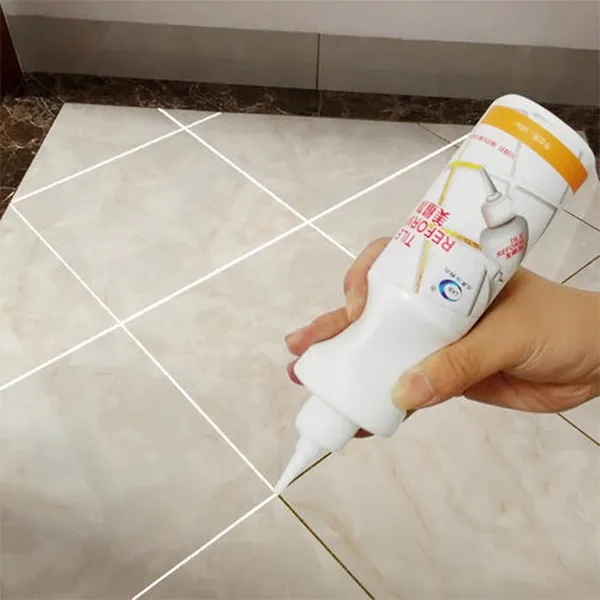The Importance of Adhesive Mortar in Modern Construction
In the realm of construction and building materials, adhesive mortar plays a crucial role in ensuring the longevity and stability of structures. Unlike traditional cement mortars, adhesive mortars are formulated to provide superior bonding strength, flexibility, and resistance to various environmental factors. This article delves into the composition, applications, benefits, and future trends of adhesive mortar in modern construction.
Understanding Adhesive Mortar
Adhesive mortar is a specialized formulation primarily used for installing ceramic tiles, natural stones, and other flooring materials. Typically composed of cement, fine aggregates, water-retaining agents, and various additives, this type of mortar enhances adhesion properties. The presence of polymers or latex compounds increases its flexibility and bonding capabilities, which allows for a more robust performance, especially in dynamic environments where movement and thermal expansion are concerns.
Applications in Construction
1. Tile Installation One of the most significant uses of adhesive mortar is in tile setting. It effectively bonds tiles to various substrates, including concrete, gypsum, and cement board. This use stretches across residential bathrooms, commercial kitchens, and outdoor patios, offering a versatile solution for different tiling needs.
2. Stone Adhesive Adhesive mortar is also used in the installation of natural stone surfaces, providing a strong bond that can withstand the weight and texture of heavy stones. This application is particularly important in facades and artwork where both appearance and durability are critical.
3. Marble and Granite The use of adhesive mortar in marble and granite installations ensures that the delicate nature of these materials does not compromise their aesthetic appeal or functional integrity. This is essential for countertops, floors, and decorative elements.
4. Drywall and Cement Board In addition to tile, adhesive mortar is a viable option for fastening drywall and cement boards. Its high adhesion properties help facilitate a seamless installation process, minimizing the risk of cracks and gaps.
Benefits of Adhesive Mortar
adhesive mortar

1. Enhanced Bonding Strength The advanced chemical formulation of adhesive mortar provides superior bonding compared to traditional mortars. This feature is vital in high-traffic areas where durability is a necessity.
2. Flexibility Adhesive mortars are designed to accommodate slight movements of the substrate, preventing cracks and ensuring the integrity of the tiled surface over time. This flexibility is especially beneficial in areas subject to temperature fluctuations and structural shifts.
3. Moisture Resistance Many adhesive mortars come with moisture-resistant properties, making them ideal for use in wet areas such as bathrooms and kitchens. This characteristic prevents water penetration that can lead to mold, mildew, and substrate degradation.
4. Ease of Application Adhesive mortars are user-friendly, allowing for straightforward application, which can save time and labor costs. This convenience appeals to both professionals and DIY enthusiasts alike.
5. Variety of Formulations The market offers a range of adhesive mortars tailored for specific applications—such as rapid-setting formulas for urgent projects or flexible options for installations in areas with significant movement.
Future Trends
As construction technology evolves, the development of adhesive mortars continues to expand. Innovations are focusing on sustainable materials and practices, with manufacturers seeking to reduce the environmental impact of their products. Biodegradable additives and recycled materials are becoming increasingly popular, appealing to eco-conscious builders and consumers.
Moreover, smart adhesive mortars embedded with sensors for real-time monitoring of moisture levels and structural integrity are on the horizon. Such advancements could revolutionize maintenance practices, allowing for proactive measures rather than reactive repairs.
Conclusion
In conclusion, adhesive mortar has become an essential component in modern construction, offering a myriad of benefits that traditional mortars cannot match. Its applications range from residential tiling to complex commercial installations, proving its versatility and importance. With ongoing innovations, adhesive mortars are well-positioned to meet the challenges of tomorrow's construction needs, ensuring that our buildings remain safe, durable, and aesthetically pleasing for years to come. As we look forward to the future, the continued development and refinement of adhesive mortar will play a vital role in shaping the construction landscape.
-
Rdp Powder: Key Considerations for Wholesalers in the Building Materials IndustryNewsJul.08,2025
-
Key Considerations for Wholesalers: Navigating the World of Hpmc - Based ProductsNewsJul.08,2025
-
Hpmc Detergent: Key Considerations for WholesalersNewsJul.08,2025
-
Key Considerations for Wholesalers: China Hpmc For Tile Adhesive, Coating Additives, Concrete Additives, and MoreNewsJul.08,2025
-
Crucial Considerations for Wholesalers: Navigating the World of Construction MaterialsNewsJul.08,2025
-
Key Considerations for Wholesalers Sourcing Additive For Cement, Additive For Concrete, Additive For Putty from Additive Manufacturer Shijiazhuang Gaocheng District Yongfeng Cellulose Co., Ltd.NewsJul.08,2025




